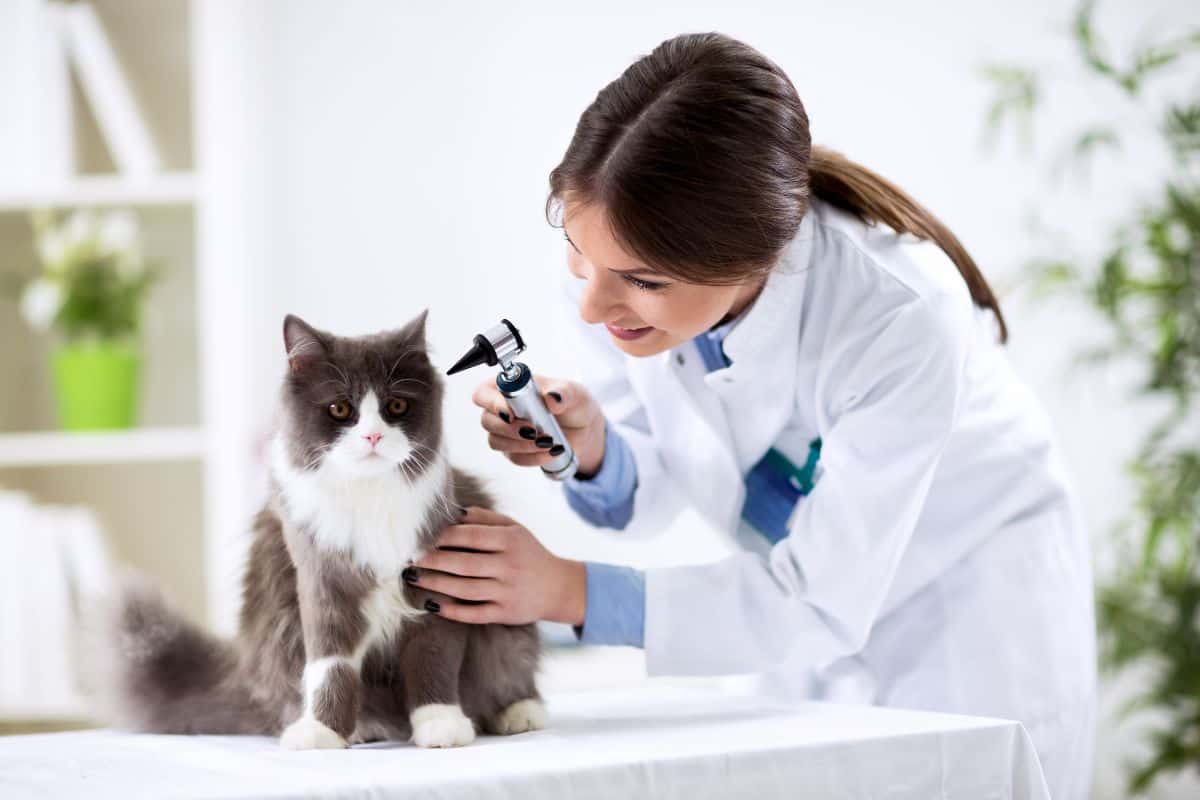The Function of Pet Vaccinations in Fighting Serious Health Issues for Your Pets
The Function of Pet Vaccinations in Fighting Serious Health Issues for Your Pets
Blog Article
Vaccination Standards From Your Trusted Veterinarian
Inoculation standards supplied by your trusted veterinarian play an important function in protecting your family pet's wellness and well-being. Core vaccines are basic for all pets, while non-core vaccines can be tailored to environmental direct exposures and particular way of livings. Comprehending the subtleties of inoculation routines, which start as very early as six to 8 weeks, is vital for ideal defense. In addition, attending to usual false impressions surrounding vaccines can further improve pet proprietors' self-confidence in these preventive procedures. As we explore these crucial facets, it comes to be significantly clear why normal appointments with your veterinarian are essential for notified decision-making.

Relevance of Vaccinations
Vaccinations play a critical function in safeguarding family pets against a series of preventable conditions. By stimulating the body immune system to acknowledge and battle certain virus, vaccines significantly minimize the incidence of infectious diseases that can influence a family pet's wellness and long life. Not just do inoculations secure private pets, yet they also add to herd immunity, thereby lowering the total prevalence of diseases in the family pet populace.
Prompt inoculations aid to reduce the spread of illness such as rabies, parvovirus, and distemper, which can have extreme consequences for both pet dogs and humans. Inoculations are typically a need for boarding centers, grooming solutions, and pet parks, making them necessary for those that desire to socialize their animals.

Core Vaccines for Pets
While the details inoculation requirements of pet dogs can differ based on individual factors, core vaccinations are widely recommended to secure against one of the most severe and usual diseases (Pet Health Checkup). Core injections are those considered essential for all pet dogs, no matter their way of living or geographic location, as they protect versus highly contagious and possibly deadly illnesses
For canines, the core injections consist of those for canine distemper, parvovirus, adenovirus (liver disease), and rabies. Canine distemper is a viral condition that impacts the respiratory, intestinal, and nerve systems. Parvovirus is understood for triggering serious stomach health problem, particularly in pups. Adenovirus can lead to liver disease, while rabies is a zoonotic condition that positions a danger to both humans and family pets.
In felines, core vaccines encompass feline panleukopenia, feline calicivirus, feline herpesvirus (rhinotracheitis), and rabies. Feline panleukopenia is an extremely transmittable viral disease that affects the body immune system and intestines. Calicivirus and herpesvirus are major contributors to top respiratory system infections in felines, while rabies continues to be an essential problem for public wellness.
Seek advice from your vet to ensure your family pets obtain their core vaccinations on timetable.
Non-Core Vaccines Explained
Non-core vaccines are tailored to resolve specific risks related to a pet dog's direct exposure, environment, and way of living to particular diseases. Unlike core vaccines, which are widely suggested for all animals, non-core vaccines are considered based on individual conditions. These injections are especially vital for pets that might encounter one-of-a-kind virus as a result of their geographical place, traveling behaviors, or tasks.
Instances of non-core vaccinations include those for Bordetella bronchiseptica, which is linked to kennel coughing, and Lyme condition, triggered by ticks. Pets that frequently communicate with other pets, such as those in boarding facilities, pet parks, or grooming atmospheres, might gain from Bordetella inoculation. If you live in an area where Lyme condition is prevalent, vaccinating versus this illness can be a prudent option for outdoor-loving canines.
Various other non-core vaccines might consist of those for leptospirosis, canine flu, and feline leukemia, relying on the particular risk factors present. It is important to have a comprehensive conversation with your veterinarian regarding your animal's way of living and the potential need for these injections, making sure a tailored vaccination method that best secures your furry pal.
Inoculation Set Up Introduction

As pets mature, it is important to follow the advised booster inoculations. Pet Health Checkup. For adult animals, core vaccinations are generally offered each to three years, relying on the certain vaccine and local regulations. Non-core injections may be encouraged based on way of living elements and local illness frequency, requiring a customized method
Routine veterinary check-ups are important for updating inoculation routines. Your veterinarian can offer guidance on the most ideal booster shots for your pet dog, factoring in age, health and wellness status, and environmental dangers. By remaining aggressive and notified, family pet proprietors can guarantee their hairy friends receive prompt and efficient inoculations, therefore securing their wellness and wellness throughout their lives.
Common Misconceptions About Injections
Mistaken beliefs regarding animal inoculations can result in complication and hesitation among pet owners regarding the immunization procedure. One widespread misconception is that injections are unnecessary for indoor family pets. While it's true that indoor animals deal with lower risks, they are not entirely immune to illness, as microorganisms can be presented via different means, consisting of human apparel and various other animals.
Another misconception is that vaccinations can create the conditions they intend to stop. In truth, most injections include suspended find or attenuated pathogens, which can not create illness in healthy animals. Some pet dog owners likewise believe that their animals ought to not be immunized if they are already healthy and balanced; however, inoculations are a proactive step that aids avoid the start of illness.
In addition, several animal proprietors fear that you can find out more vaccines will certainly result in lasting wellness complications. While negative effects can take place, they are short-lived and normally moderate. The advantages of inoculation-- securing family pets from potentially serious illness-- much outweigh the threats. Comprehending these typical misconceptions is important for responsible pet possession and ensuring the health and wellness and safety and security of your furry buddies. Constantly consult your vet for precise information customized to your pet dog's details requirements.
Conclusion
In recap, adherence to inoculation standards is important for guaranteeing the health and wellness and longevity of pets. Dispelling usual myths surrounding inoculations additionally enhances the relevance of notified decision-making in pet dog treatment.
Not just More about the author do vaccinations safeguard specific pets, but they also add to herd immunity, therefore minimizing the overall frequency of diseases in the pet populace.
False impressions about pet inoculations can lead to complication and hesitation amongst animal owners regarding the immunization process. While it's real that interior family pets face reduced dangers, they are not completely immune to diseases, as microorganisms can be presented with various means, including human clothes and various other animals.
Some family pet proprietors likewise think that their family pets ought to not be vaccinated if they are already healthy; nevertheless, inoculations are a proactive measure that assists protect against the beginning of disease.
The advantages of inoculation-- shielding pet dogs from potentially life-threatening conditions-- much surpass the risks.
Report this page